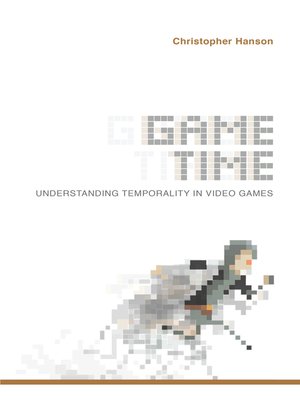Game Time
ebook ∣ Understanding Temporality in Video Games · Digital Game Studies
By Christopher Hanson

Sign up to save your library
With an OverDrive account, you can save your favorite libraries for at-a-glance information about availability. Find out more about OverDrive accounts.
Find this title in Libby, the library reading app by OverDrive.



Search for a digital library with this title
Title found at these libraries:
| Library Name | Distance |
|---|---|
| Loading... |
Preserving, pausing, slowing, rewinding, replaying, reactivating, reanimating Has the ability to manipulate video game timelines altered our cultural conceptions of time?
Video game scholar Christopher Hanson argues that the mechanics of time in digital games have presented a new model for understanding time in contemporary culture, a concept he calls "game time." Multivalent in nature, game time is characterized by apparent malleability, navigability, and possibility while simultaneously being highly restrictive and requiring replay and repetition. When compared to analog tabletop games, sports, film, television, and other forms of media, Hanson demonstrates that the temporal structures of digital games provide unique opportunities to engage players with liveness, causality, potentiality, and lived experience that create new ways of experiencing time
Featuring comparative analysis of key video games titles—including Braid, Quantum Break, Battle of the Bulge, Prince of Persia: The Sands of Time, Passage, The Legend of Zelda: The Ocarina of Time, Lifeline, and A Dark Room.







